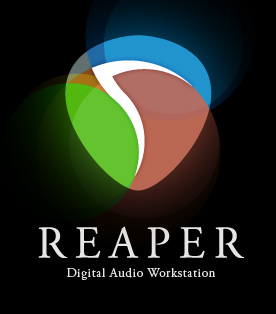
Windows Media Player (WMP) is a media player and media library application developed by Microsoft that is used for playing audio, video and viewing images on personal computers running the Microsoft Windows operating system, as well as on Pocket PC and Windows Mobile-based devices. Editions of Windows Media Player were also released for classic Mac OS, Mac OS X and Solaris but development of these has since been discontinued.
Shorten (SHN) is a file format used for compressing audio data. It is a form of data compression of files and is used to losslessly compress CD-quality audio files. Shorten is no longer developed and other lossless audio codecs such as FLAC, Monkey's Audio (APE), TTA, and WavPack (WV) have become more popular. However, Shorten is still in use by some people because there are legally traded concert recordings in circulation that are encoded as Shorten files. Shorten files use the .shn file extension.

Winamp is a media player for Microsoft Windows originally developed by Justin Frankel and Dmitry Boldyrev by their company Nullsoft, which they later sold to AOL in 1999 for $80 million. It was then acquired by Radionomy in 2014. Since version 2 it has been sold as freemium and supports extensibility with plug-ins and skins, and features music visualization, playlist and a media library, supported by a large online community.
XM, standing for "extended module", is an audio file type introduced by Triton's FastTracker 2. XM introduced multisampling-capable instruments with volume and panning envelopes, sample looping and basic pattern compression. It also expanded the available effect commands and channels, added 16-bit sample support, and offered an alternative frequency table for portamentos.

Audacity is a free and open-source digital audio editor and recording application software, available for Windows, macOS, Linux, and other Unix-like operating systems. The project was started in the fall of 1999 by Dominic Mazzoni and Roger Dannenberg at Carnegie Mellon University, and released on May 28, 2000, as version 0.8.

Pro Tools is a digital audio workstation (DAW) developed and released by Avid Technology for Microsoft Windows and macOS. It is used for music creation and production, sound for picture and, more generally, sound recording, editing, and mastering processes.

VirtualDub is a free and open-source video capture and video processing utility for Microsoft Windows written by Avery Lee. It is designed to process linear video streams, including filtering and recompression. It uses AVI container format to store captured video. The first version of VirtualDub, written for Windows 95, to be released on SourceForge was uploaded on August 20, 2000.

VLC media player is a free and open-source, portable, cross-platform media player software and streaming media server developed by the VideoLAN project. VLC is available for desktop operating systems and mobile platforms, such as Android, iOS and iPadOS. VLC is also available on digital distribution platforms such as Apple's App Store, Google Play, and Microsoft Store.

OpenMPT is an open-source audio module tracker for Windows. It was previously called ModPlug Tracker, and was first released by Olivier Lapicque in September 1997.

FastTracker 2 is a music tracker created by Fredrik "Mr. H" Huss and Magnus "Vogue" Högdahl, two members of the demogroup Triton which set about releasing their own tracker after breaking into the scene in 1992 and winning several demo competitions. The source code of FastTracker 2 is written in Pascal using Borland Pascal 7 and TASM. The program works natively under MS-DOS.

RealPlayer, formerly RealAudio Player, RealOne Player and RealPlayer G2, is a cross-platform media player app, developed by RealNetworks. The media player is compatible with numerous container file formats of the multimedia realm, including MP3, MP4, QuickTime File Format, Windows Media format, and the proprietary RealAudio and RealVideo formats. RealPlayer is also available for other operating systems; Linux, Unix, Palm OS, Windows Mobile, and Symbian versions have been released.

Module file is a family of music file formats originating from the MOD file format on Amiga systems used in the late 1980s. Those who produce these files and listen to them form the worldwide MOD scene, a part of the demoscene subculture.
ReplayGain is a proposed technical standard published by David Robinson in 2001 to measure and normalize the perceived loudness of audio in computer audio formats such as MP3 and Ogg Vorbis. It allows media players to normalize loudness for individual tracks or albums. This avoids the common problem of having to manually adjust volume levels between tracks when playing audio files from albums that have been mastered at different loudness levels.
M3U is a computer file format for a multimedia playlist. One common use of the M3U file format is creating a single-entry playlist file pointing to a stream on the Internet. The created file provides easy access to that stream and is often used in downloads from a website, for emailing, and for listening to Internet radio.

REAPER is a digital audio workstation and MIDI sequencer software created by Cockos. The current version is available for Microsoft Windows and macOS, as well as for Linux. REAPER acts as a host to most industry-standard plug-in formats and can import all commonly used media formats, including video. REAPER and its included plug-ins are available in 32-bit and 64-bit format.
S3M is a module file format, the successor to the STM format used by the original Scream Tracker. Both formats are based on the original MOD format used on the Commodore Amiga computer.

Impulse Tracker is a multi-track music tracker. Originally released in 1995 by Jeffrey Lim as freeware with commercial extensions, it was one of the last tracker programs for the DOS platform.

MusicBee is a freeware media player for playback and organization of audio files on Microsoft Windows, built using the BASS audio library.

Quod Libet is a cross-platform free and open-source audio player, tag editor and library organizer. The main design philosophy is that the user knows how they want to organize their music best; the software is therefore built to be fully customizable and extensible using regular expressions and boolean logic. Quod Libet is based on GTK and written in Python, and uses the Mutagen tagging library. Ex Falso is the stand-alone tag-editing app based on the same code and libraries.










